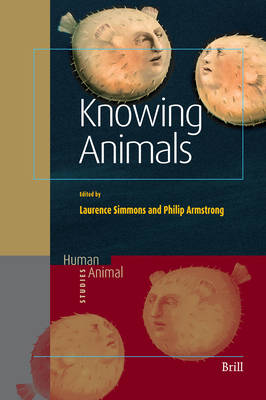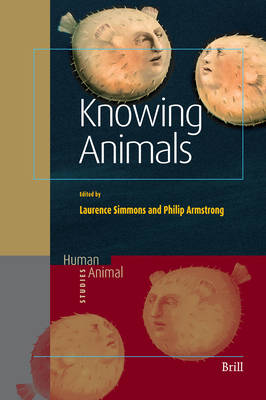
- Afhalen na 1 uur in een winkel met voorraad
- Gratis thuislevering in België vanaf € 30
- Ruim aanbod met 7 miljoen producten
- Afhalen na 1 uur in een winkel met voorraad
- Gratis thuislevering in België vanaf € 30
- Ruim aanbod met 7 miljoen producten
€ 210,95
+ 421 punten
Omschrijving
In recent decades the humanities and social sciences have undergone an 'animal turn', an efflorescence of interdisciplinary scholarship which is fresh and challenging because its practitioners consider humans as animals amongst other animals, while refusing to do so from an exclusively or necessarily biological point of view. Knowing Animals showcases original explorations of the 'animal turn' by new and eminent scholars in philosophy, literary criticism, art history and cultural studies. The essays collected here describe a lively bestiary of cultural organisms, whose flesh is (at least partly) conceptual and textual: paper tigers, beast fables, anthropomorphs, humanimals, l'animot. In so doing, they investigate the benefits of knowing animals differently: more closely, less definitively, more carefully, less certainly.
Contributors include: Laurence Simmons, Alphonso Lingis, Barbara Creed, Tanja Schwalm, Philip Armstrong, Annie Potts, Allan Smith, Ricardo De Vos, Catharina Landström, Brian Boyd, Helen Tiffin, Ian Wedde.
Contributors include: Laurence Simmons, Alphonso Lingis, Barbara Creed, Tanja Schwalm, Philip Armstrong, Annie Potts, Allan Smith, Ricardo De Vos, Catharina Landström, Brian Boyd, Helen Tiffin, Ian Wedde.
Specificaties
Betrokkenen
- Auteur(s):
- Uitgeverij:
Inhoud
- Aantal bladzijden:
- 312
- Taal:
- Engels
- Reeks:
- Reeksnummer:
- nr. 4
Eigenschappen
- Productcode (EAN):
- 9789004157736
- Verschijningsdatum:
- 26/03/2007
- Uitvoering:
- Paperback
- Formaat:
- Trade paperback (VS)
- Afmetingen:
- 162 mm x 242 mm
- Gewicht:
- 562 g

Alleen bij Standaard Boekhandel
+ 421 punten op je klantenkaart van Standaard Boekhandel
Beoordelingen
We publiceren alleen reviews die voldoen aan de voorwaarden voor reviews. Bekijk onze voorwaarden voor reviews.









